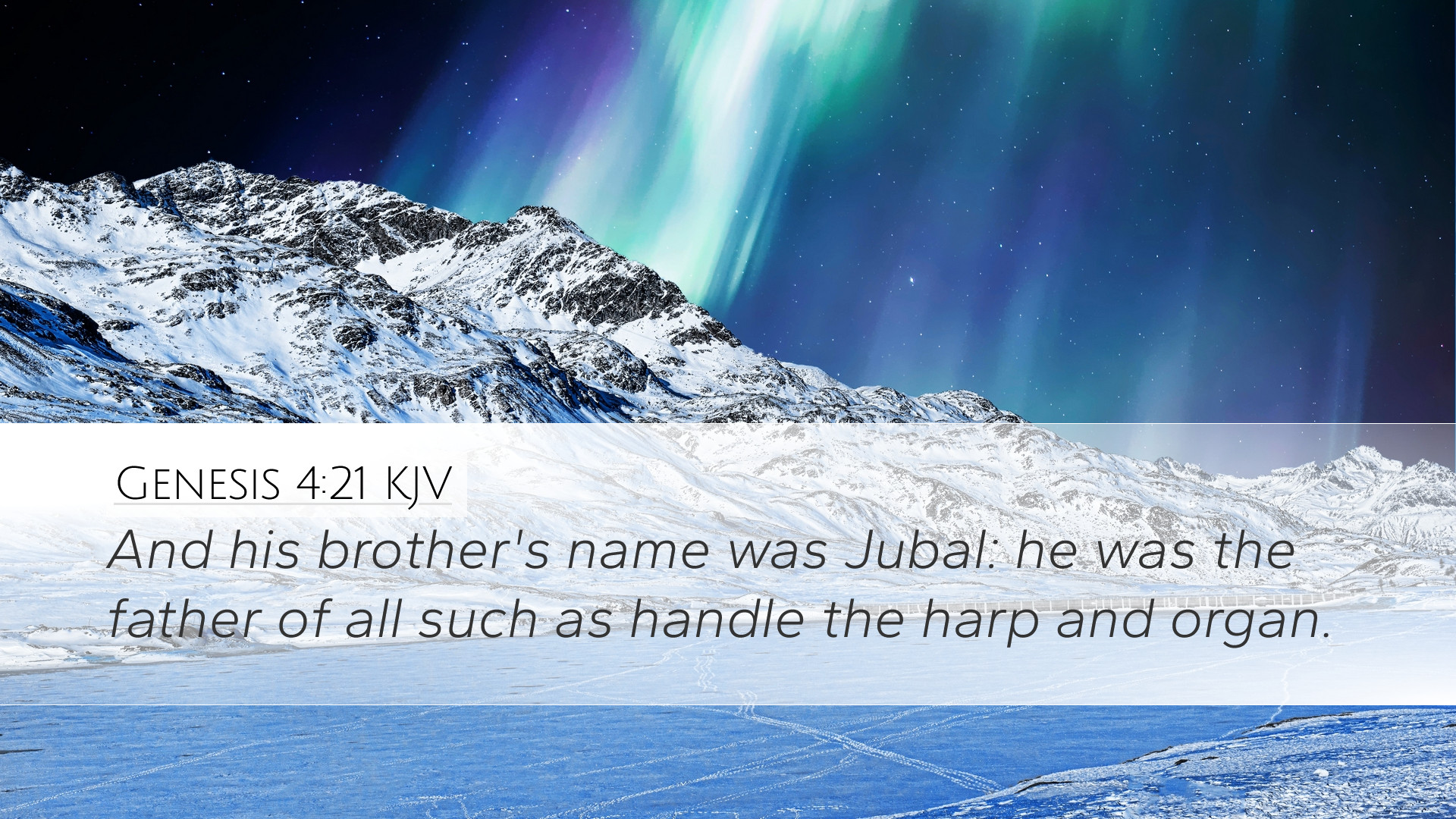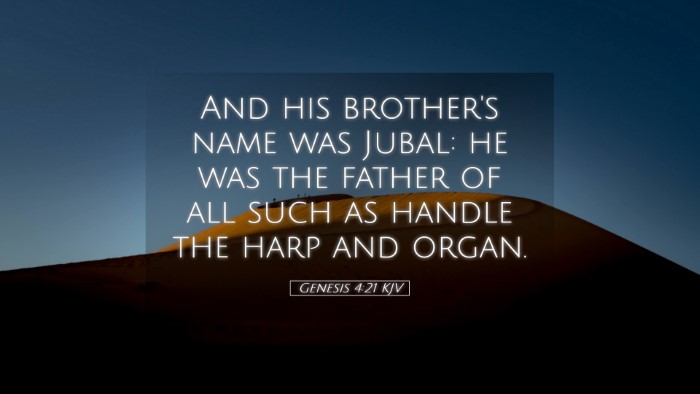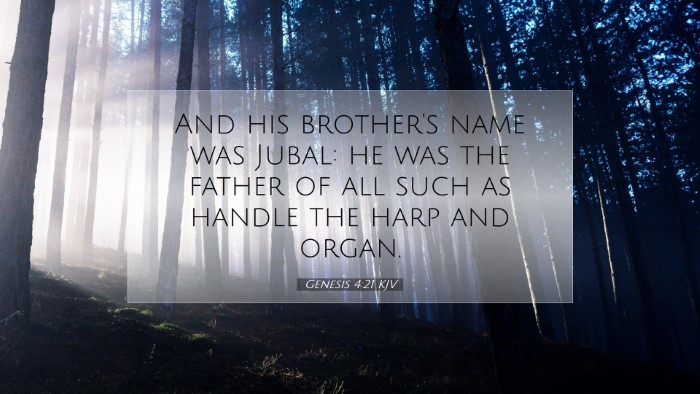Commentary on Genesis 4:21
Bible Verse: "And his brother's name was Jubal: he was the father of all such as handle the harp and organ." (Genesis 4:21, KJV)
Introduction
This verse appears in the context of the genealogy of Cain’s descendants. It highlights the figure of Jubal, who is recognized as a pioneer in music and the arts. The implications of this verse extend beyond a mere listing of descendants. It opens a window into the cultural development of humanity in the early post-Lapsarian world.
Insights from Public Domain Commentaries
Various theologians have provided rich insights into Genesis 4:21. Below, we gather the observations of Matthew Henry, Albert Barnes, and Adam Clarke, forming a coherent understanding suitable for pastors, students, theologians, and Bible scholars.
Matthew Henry's Commentary
Matthew Henry notes that Jubal is introduced as the "father of all such as handle the harp and organ," emphasizing that he represents the emergence of musical arts in civilization. Henry suggests that music plays a vital role in human expression and worship, which indicates a significant development in cultural practices. He points out that the use of instruments is a reflection of human creativity, inspired by God, who is the ultimate source of beauty and harmony.
Albert Barnes' Notes
Albert Barnes elaborates on the text by indicating that the mention of Jubal is significant as it suggests a division of labor and specialization in society. He argues that the ability to create music represents not only artistic ability but also a deeper reflection of the human experience. Music is noted to convey emotions and enhance communal worship, highlighting the role of arts in spiritual life. Barnes also connects the advent of music to the broader implications of culture and civilization, asserting that music has always been a part of spiritual expression since the days of Jubal.
Adam Clarke's Commentary
Adam Clarke emphasizes the historical significance of Jubal’s inventions. He suggests that the harp and organ symbolize the advent of complex musical instruments that contributed to cultural richness. Clarke goes further to interpret the evolution of music as a distinct hallmark of humanity's progress post-Fall. He also remarks on the dual function of music as both entertainment and a medium for worship, illustrating how Jubal's legacy carries through the ages as a reminder of the blend of artistry and spirituality.
Theological Implications
The theological implications of Genesis 4:21 can be profound when considering the Lord’s intention for creating humanity in His image. Music is often viewed as a divine gift that reflects God’s nature—His creativity, order, and beauty. The Bible enjoins believers to sing praises, which further brings into focus the foundational truth that artistic expression is not to be separated from worship. The fact that Jubal is the "father" of musicians indicates that such talents can be traced back to divine creativity, making artists conduits of God’s glory.
- The Nature of Music: Music is inherently part of the human experience; it transcends cultural boundaries and speaks to the universality of human emotions.
- Community Worship: Jubal’s contribution signifies the need for communal and individual expressions of worship, wherein music aids in drawing believers closer to the Divine.
- Human Creativity: The ability to create art is a reflection of being made in the image of God, reinforcing the idea that creativity itself is a holy endeavor.
Practical Applications
As pastors and church leaders reflect on Genesis 4:21, it becomes essential to nurture and harness the artistic talents within their congregations. Here are some practical applications that can be drawn from this text:
- Encourage Music Ministry: Foster an environment where music is a vital part of worship, enhancing both personal and collective experiences.
- Support Artistic Expression: Recognize and celebrate diverse forms of artistic expression within the community, understanding that these gifts enrich the body of Christ.
- Integrate Worship and Arts: Help congregations see the link between their creative pursuits and their spiritual life, encouraging them to use their skills for the glory of God.
Conclusion
Genesis 4:21 serves as a reminder of the profound connections between humanity, creativity, and the divine. As we explore the legacy of Jubal, we recognize that the arts, especially music, are not merely cultural artifacts but intrinsic elements of worship. Through the eyes of historical commentators, we see that this verse offers both a snapshot of human advancement and a call to engage in the rich tradition of artistic expression that honors God. The study of this passage can inspire and challenge believers to embrace their creative gifts as essential to their faith.


